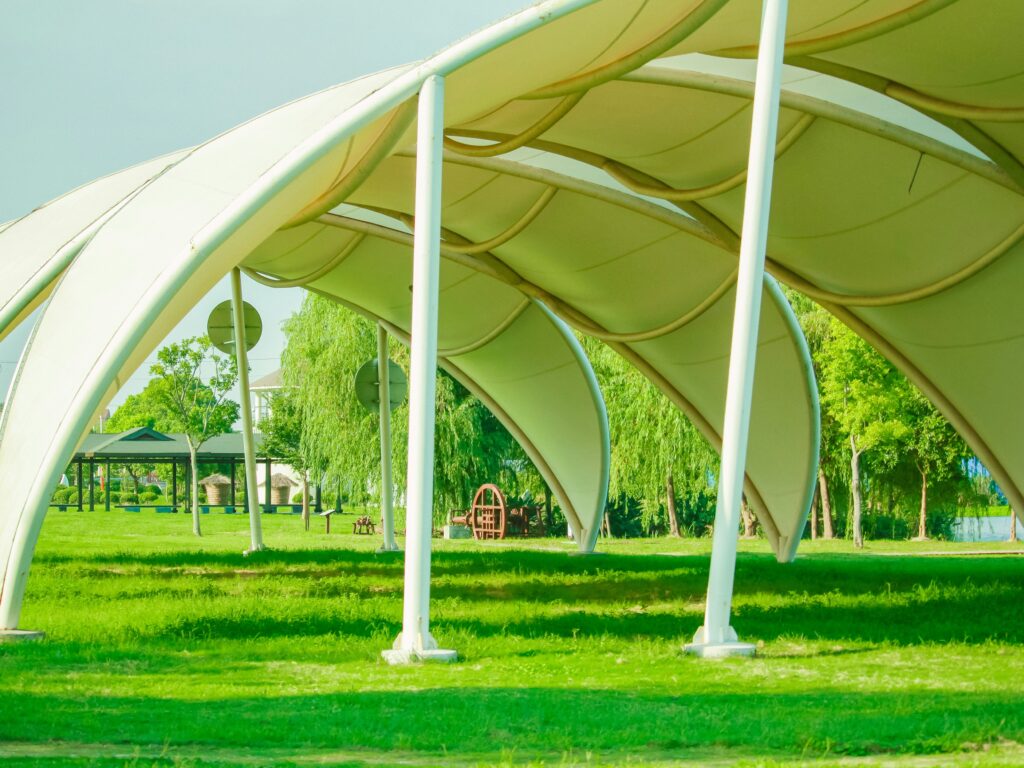In the age of global warming and rampant pollution, embracing sustainable practices has become more crucial than ever. This ethos not only applies to our everyday lives but also extends to the corporate world, including the realm of event planning. Today, we delve into a new trend gaining significant traction – hosting events at green certified venues. This practice showcases not only a commitment to sustainability but also an innovative approach to event management.

Green certified venues are spaces recognized for their commitment to sustainable practices, whether in energy use, waste management, or sourcing of materials. They provide a unique opportunity to reduce the environmental impact of your event, while also offering a distinctive selling point to attendees who value sustainability. Plus, who wouldn’t want to attend an event held in a space that contributes positively to the environment?
In this write-up, we’ll be taking a close look at the benefits of hosting events at green certified venues. We will cover not only the environmental advantages but also how this choice can improve your brand’s reputation, contribute to corporate social responsibility goals, and even generate cost savings in some instances.
Moreover, we’ll highlight some of the leading green certified venues around the world, giving you a taste of the remarkable variety and innovation in this sector. From urban eco-hotels to serene woodland retreats, these spaces are redefining the meaning of event hosting, pushing boundaries and challenging conventions.
Join us as we journey into the world of green event venues, showcasing how, through thoughtful choice of location, your next event could make a significant contribution towards sustainability. Discover how you can make a difference, one event at a time.
Understanding the Broader Scope of Green Certification
While LEED certification is among the most well-known, it is not the only system that assesses and verifies the environmental responsibility of venues. Several other internationally recognized certifications help define what makes a venue green. For example, the BREEAM (Building Research Establishment Environmental Assessment Method) standard is widely used in Europe, while the Green Globe Certification is a global program specific to the tourism and hospitality industries.
Each certification body has slightly different criteria, but they generally focus on key areas such as sustainable site development, water efficiency, energy usage, materials selection, indoor environmental quality, innovation, and maintenance practices. Understanding the scope of these certifications can help event planners make informed decisions that align with their sustainability goals.
Moreover, the process of obtaining green certification is often rigorous and transparent, providing assurance that a venue has made meaningful efforts to operate sustainably. It is not merely a marketing tool but a verifiable commitment to reducing environmental harm through thoughtful design, operation, and innovation.
How Green Venues Support the Event Ecosystem
The benefits of choosing a green certified venue go far beyond the physical space itself. These venues often work closely with local suppliers and partners who share their sustainability values. This interconnected network promotes a broader green event ecosystem that includes sustainable catering, transportation options, reusable décor rentals, and responsible waste management services.
For instance, many green certified venues have relationships with organic caterers who provide farm-to-table menus, reducing the carbon footprint of food and beverage services. Others offer in-house waste sorting stations, digital signage instead of printed materials, and even composting programs for food waste. These comprehensive solutions streamline planning and make it easier for hosts to keep their events aligned with sustainability goals.
Some venues even offer carbon tracking services, which allow organizers to measure the total carbon footprint of their event and identify areas for future improvement. This type of data collection is becoming increasingly important for companies that report on their Environmental, Social, and Governance (ESG) initiatives or need to meet regulatory sustainability standards.
Health and Wellness Benefits for Attendees
Green certified venues are not just about environmental impact. They are also designed with occupant health and wellness in mind. Clean indoor air, natural daylight, acoustically optimized spaces, and ergonomically designed furniture all contribute to an improved attendee experience. These venues prioritize ventilation systems that reduce airborne contaminants and are free from toxic building materials that emit volatile organic compounds.
Studies have shown that well-ventilated spaces with plenty of natural light can improve concentration, reduce fatigue, and boost overall mood. These factors are particularly important for conferences, training sessions, and corporate retreats, where productivity and participant engagement are crucial.
In addition, some green certified venues incorporate elements of biophilic design, which connects people with nature through the use of indoor plants, natural textures, and views of the outdoors. This approach not only enhances aesthetics but also contributes to lower stress levels and increased attendee satisfaction.
Enhancing Corporate Social Responsibility Goals
For corporations and organizations aiming to align their business practices with corporate social responsibility (CSR) objectives, choosing a green certified venue can serve as a powerful and visible action. Events represent high-impact opportunities to showcase a brand’s values and commitment to the environment.
When a company hosts a product launch, leadership summit, or stakeholder meeting at a sustainable venue, it is making a public statement about what it stands for. This decision can be highlighted in press releases, sustainability reports, marketing materials, and social media content. These communications help reinforce the brand’s position on climate action and responsible resource use.
Furthermore, green events can be used to engage employees and clients in CSR initiatives. For example, incorporating a community service component such as tree planting or holding a zero-waste challenge during the event are impactful ways to involve attendees in meaningful, values-driven experiences.
Green Venues and the Future of Hybrid Events
As hybrid events become more common, the role of green certified venues is evolving to meet the needs of both in-person and virtual participants. These venues are often equipped with cutting-edge technology that reduces the need for excessive equipment rentals and energy consumption.
Features such as built-in video conferencing capabilities, high-efficiency AV systems, and centralized lighting controls support seamless hybrid integration. These innovations not only enhance accessibility for remote attendees but also reduce the environmental impact of travel and infrastructure associated with fully in-person events.
Many green certified venues also incorporate renewable energy sources like solar panels or purchase green energy credits to power their operations. This clean energy is crucial when supporting the increased digital load required for streaming and digital content management during hybrid events.
Event Insurance and Regulatory Compliance
Working with green certified venues can also offer advantages in terms of risk management and regulatory compliance. Many cities and countries are implementing sustainability requirements for events, particularly those that receive government funding or are hosted on public property.
Choosing a certified venue ensures a strong baseline of compliance with existing environmental laws and building codes. Additionally, these venues often come with built-in policies and procedures that reduce liability, such as safety certifications, fire mitigation systems, and clear emergency response plans.
Some event insurers now offer discounts or enhanced coverage for events that meet certain sustainability standards. Demonstrating that your venue partner is green certified may strengthen your case for preferred pricing or faster claims processing in case of unforeseen disruptions.
Financial Considerations and Return on Investment
While the perception may be that green certified venues are more expensive, many event planners find that the long-term benefits outweigh the initial cost. Energy efficiency measures often result in lower utility costs, and some venues offer bundled sustainable services that reduce the need for third-party vendors.
Moreover, sustainable practices can lead to increased attendance and engagement. Consumers and professionals alike are becoming more selective about the events they support. A venue that aligns with their values can be a significant draw and even a deciding factor in attendance.
Sponsorship opportunities also expand when sustainability is a focal point. Brands looking to align with green initiatives may be more inclined to support your event, offering financial backing or in-kind contributions in exchange for visibility and association with a responsible initiative.
Global Examples of Leading Green Venues
To inspire your event planning, it is helpful to explore real-world examples of successful green certified venues.
The Vancouver Convention Centre in Canada is LEED Platinum certified and uses a seawater heating and cooling system, a living roof, and on-site water treatment. It sets a global standard for large-scale green event venues.
In the United States, the David L. Lawrence Convention Center in Pittsburgh incorporates natural ventilation, daylighting, and water reuse systems. It was the first convention center in North America to achieve LEED certification.
Elsewhere, the Sands Expo and Convention Centre in Singapore is part of the Marina Bay Sands complex, which holds the ISO 20121 Sustainable Events Management System certification. It emphasizes food waste reduction, sustainable procurement, and responsible water use.
These venues demonstrate that sustainability can coexist with scale, technology, and luxury. They are examples of how innovation, architecture, and environmental ethics can combine to create inspiring spaces for all kinds of events.
The Benefits of Green Certified Venues
Hosting your event at a green certified venue comes with numerous benefits. Here are a few:
- Reduced Environmental Impact: Green certified venues are designed to minimize waste, conserve energy, and reduce water consumption. This significantly lowers the environmental impact of your event.
- Cost Savings: Although the initial investment may be higher, green certified venues often result in significant long-term savings. Energy-efficient lighting and HVAC systems, water-saving fixtures, and other sustainable features can drastically reduce utility costs.
- Improved Attendee Experience: Green venues often provide a healthier and more comfortable environment for attendees. Improved air quality, natural lighting, and comfortable temperatures can enhance the attendee experience and increase satisfaction.
- Positive Brand Image: Hosting an event at a green certified venue demonstrates a commitment to sustainability, which can boost your brand’s reputation and appeal to environmentally conscious consumers.
Choosing a Green Certified Venue
When choosing a green certified venue for your event, consider the following factors:
Location
The venue’s location can significantly impact the event’s overall environmental footprint. Choose a venue that is easily accessible by public transportation to minimize carbon emissions associated with travel.
Certifications
Ensure that the venue holds valid certifications from recognized green building councils or environmental organizations.
Sustainable Practices
Inquire about the venue’s waste management practices, energy usage, and water conservation measures.
Final Thoughts
Green certified venues represent a significant shift in the event industry towards more sustainable practices. By choosing such a venue for your event, you can minimize your environmental impact, save costs, enhance the attendee experience, and boost your brand’s reputation. As the demand for sustainability in the event industry grows, so does the need for green certified venues. Making the switch not only makes good business sense, it is also the right thing to do for our planet.
Furthermore, aligning your event with environmental values resonates with increasingly conscious audiences. It demonstrates leadership, integrity, and a long-term vision for a healthier, more sustainable future.
Conclusion
In conclusion, embracing sustainability and selecting a Green Certified Venue for your event is not only an ethical choice but also a strategic one. It is evident that these venues offer a multitude of benefits—from cost savings to enhancing brand reputation and strengthening corporate responsibility. By choosing a Green Certified Venue, you are contributing to the global movement of sustainability, setting an example for others, and demonstrating your commitment to a more responsible and sustainable future.
Moreover, such choices have a ripple effect, encouraging stakeholders, clients, and attendees to adopt eco-friendly practices in their respective areas. It is through these collective efforts that we can truly make a significant and lasting positive impact on the environment. Sustainable event planning and hosting is no longer a niche consideration—it is now a standard for conscious organizations and forward-thinking individuals alike.
Choosing a Green Certified Venue is a step towards creating memorable, meaningful events while significantly reducing environmental footprint. It is about making smart, ethical decisions that benefit not just us, but the entire planet for generations to come. Remember, sustainability isn’t just a trend—it’s a responsibility and a powerful opportunity to lead by example. It’s time to switch to green venues and experience sustainability in its most impactful and inspiring form.



